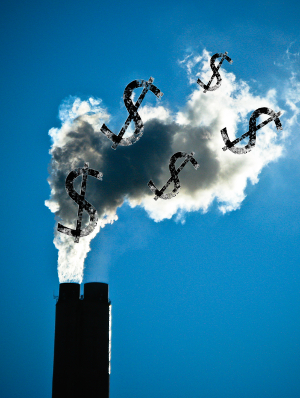Carbon-buying scheme could be better
 One of the key figures behind the passage of the Government’s Emissions Reduction Fund says it is a good start, but needs to be backed by a better plan.
One of the key figures behind the passage of the Government’s Emissions Reduction Fund says it is a good start, but needs to be backed by a better plan.
The Government has awarded $660 million worth of grants – about a quarter of the total to be spent - to companies and farmers pledging to reduce their carbon emissions, following an auction last month.
Environment Minister Greg Hunt has celebrated the result, describing the purchase of 47 million tonnes of pollution as “stunning”.
But Independent senator Nick Xenophon has warned that the Government will have to move away from the Emissions Reduction Fund (ERF) as a sole solution, and find a more sustainable way to cut greenhouse gases.
Senator Xenophon - whose vote was crucial in getting the ERF through the Senate – made the comments at a Carbon Markets Institute function in Melbourne this week.
“The ERF is useful to jumpstart the process, but we cannot rely on this to achieve all our emissions reductions, particularly taking our future international commitments into account,” he said.
Xenophon slammed the Government’s attempt to build a 'safeguard' mechanism into the ERF legislation, which is designed to prevent big polluters from offsetting their abatement gains by creating new emissions elsewhere.
Experts have slammed draft legislation that sought to allow the companies to set their own baselines, and therefore avoid limiting their other activities.
Senator Xenophon said he may be forced to block the potentially weak legislation on safeguards.
“To see such a weak, ineffective proposal put forward by the Government made me furious. It's not so much ‘light touch’ as ‘hands off’,” he said.
“We cannot shift the entire responsibility of achieving emissions reductions on to the budget with a budget deficit, which by the Government's own insistence needs urgent structural reform.”
The Environment Department says it is still in consultation on the final form of the safeguard legislation.








 Print
Print